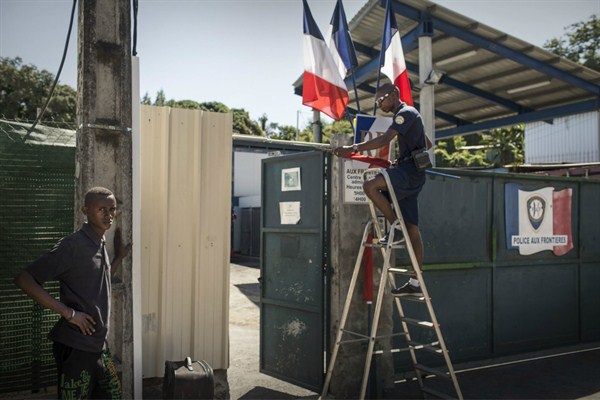Last November, the governments of France and Comoros agreed to resolve a months-long diplomatic spat over migration that had severely strained their relationship. Azali Assoumani, the president of Comoros, sparked the standoff last April when his government stopped accepting its deported citizens from Mayotte, a nearby French overseas territory that is also claimed by Comoros. This led France to retaliate by suspending visas to all Comorian nationals. According to Simon Massey, a senior lecturer in international relations at Coventry University, the dispute provided Assoumani with an opportunity to galvanize the electorate and build support for a referendum on constitutional revisions to extend presidential term limits, among other controversial changes. In an interview with WPR, Massey analyzes the migration dispute in the context of Comoros’ complicated relationship with France.
World Politics Review: What were the roots of the recent migration dispute, and what impact has it had on relations between France and Comoros?
Simon Massey: In 1995, France applied a highly restrictive visa regime for Comorian citizens seeking to travel to Mayotte. Since then, an estimated 10,000 Comorians have been killed attempting the perilous sea crossing without travel documents. Many of them are economic migrants seeking opportunities on Mayotte, which has a much higher standard of living than Comoros. Others are simply trying to visit family.

